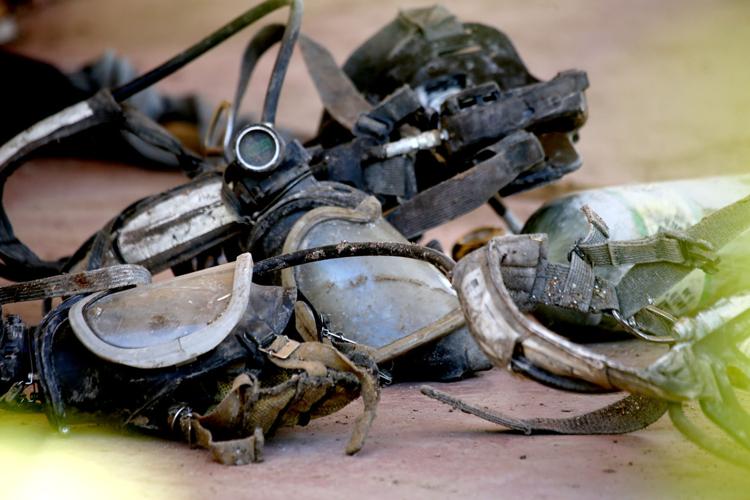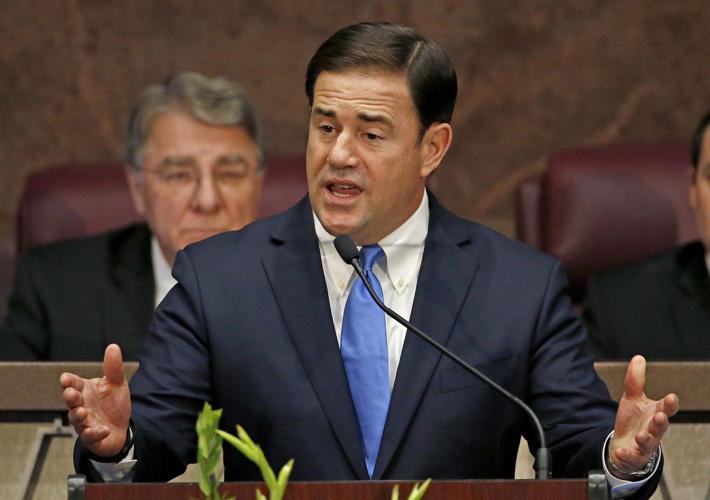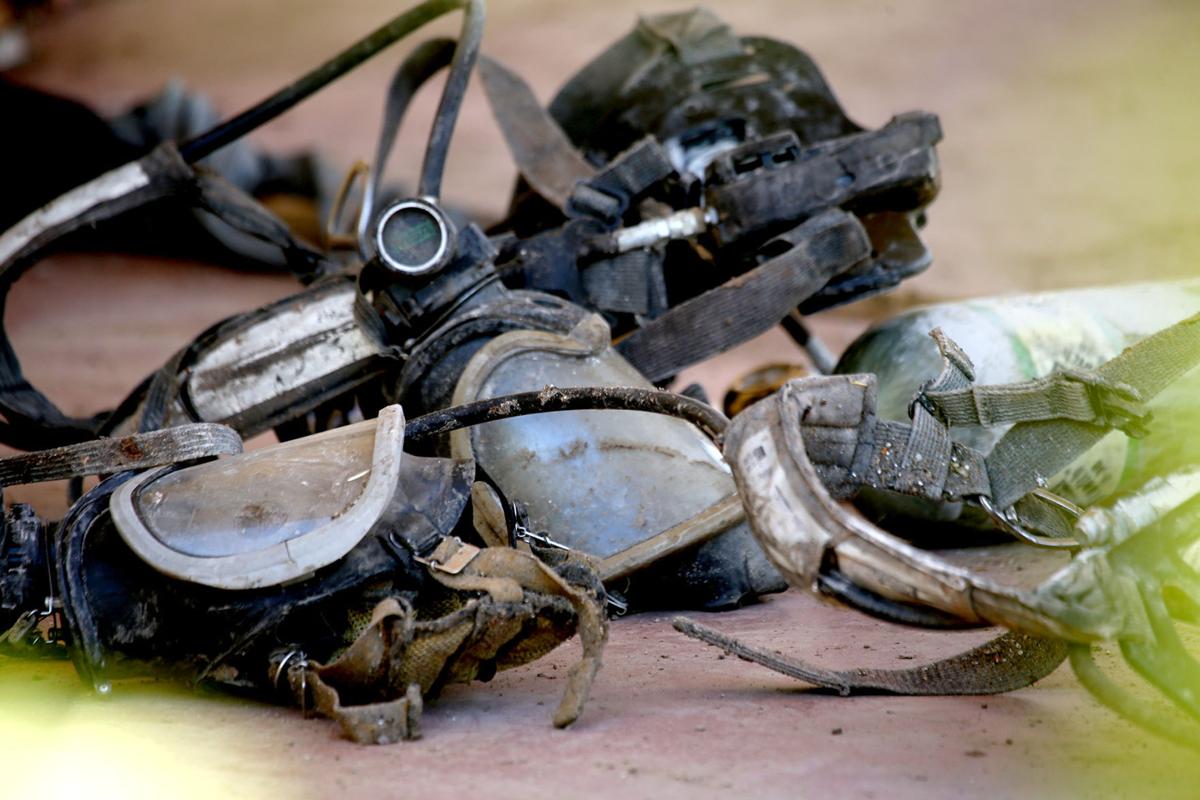PHOENIX — Unwilling to consider a gas-tax increase, Gov. Doug Ducey is now counting on the Trump administration to help Arizona deal with its road construction needs.
Or at least a small percentage of them.
The governor has submitted a wish list of more than $500 million worth of projects to the White House that he hopes will be included in the president’s grand plans for major infrastructure improvements.
Most of them involve upgrades to existing roads, with improvement of Interstate 10, largely in the Phoenix area, at the top of the list.
There’s also a request for $135 million to improve Arizona 189, the three-mile stretch of road that connects I-19 with the international border.
The governor’s bid for money from Washington does not end with pavement.
He wants $38.5 million to test for — and fix if necessary — lead in water that children are drinking at perhaps a quarter of the state’s schools, which have old pipes; and another $8.4 million to keep children at 26 schools from inhaling mercury vapor from rubber flooring.
Ducey hopes for $17.5 million to replace aging air conditioning units at schools.
Among other requests, he also wants up to $3.6 million to cap more than 2,000 open wells in the state. “Open wells create a safety hazard in Arizona,” the Governor’s Office said in its submission.
Ducey’s request for federal road funds comes after a legislative panel issued a report putting the state’s immediate unmet road-funding needs at about $20 billion.
Working with that, several lawmakers have crafted ways to help raise the money. Rep. Noel Campbell, R-Prescott, proposed increasing the state’s 18-cent-a-gallon gasoline tax, which has remained unchanged since 1992. Ducey dismissed that out of hand.
“I’m opposed to raising taxes,” Ducey said Thursday, while conceding that the state has unfunded transportation needs.
“I’m not opposed to investing in roads and bridges,” he said. He cited the $86 million that was added in this year’s budget to the Highway User Revenue Fund, the account that finances such improvements.
Only thing is, that was a one-time cash infusion. The governor’s budget for the coming fiscal year takes back those dollars. Ducey said he’s doing what he can with the dollars that are available.
“This year we put money into schools and to teachers and into education,” he said. “The state has a lot of needs. We’re going to focus in a slowly growing economy on improving the state and the quality of life in the state.”
And Ducey, newly back from the National Governors Association, thinks Arizona can get money from elsewhere.
“One of the most promising things I heard back in Washington, D.C., was this idea of partnership with the states and with governors on the president’s infrastructure plan,” he said. “I know there’s a lot of big numbers being thrown around.”
Trump is reportedly weighing projects totaling $137 billion.
The governor conceded that it’s a long way between putting in a wish list and getting federal dollars back. “That may be a bridge too far immediately,” Ducey said. “But it will take a partnership.”
For now, the idea of raising the state gas tax is dead.
Campbell got the measure through the House Transportation Committee, which he chairs, on a 7-1 vote. But it got squashed when Rep. Michelle Ugenti-Rita, R-Scottsdale, refused to give it a hearing in the Ways and Means Committee through which all tax bills must pass.
That hasn’t stopped other lawmakers from looking for ways to finance roads. Last month the Senate voted to give county officials the power to ask their local voters whether to impose their own dime-a-gallon gas increase for up to 20 years. Revenues would be earmarked for road projects.
The future of that, however, remains unclear. First the measure, like the now-dead Campbell proposal, would need to pass through the House Ways and Means Committee. Ugenti-Rita did not immediately return calls on whether she is willing to give the measure a hearing.
If it survives that process, it would have to go to Ducey. Gubernatorial press aide Daniel Scarpinato was noncommittal Thursday. “We’d have to see the specific legislation,” he said. “But he’s generally opposed to efforts that would result in higher taxes.”







